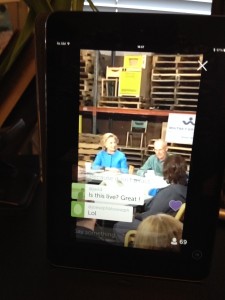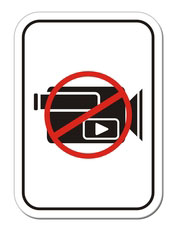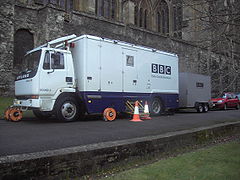Depending on your point of view, in 2015 we are either living in a golden age of news or teetering on the brink of unregulated chaos and information overload. Communication via internet and social media has seen the rise of citizen journalists and media-savvy extremists as well as bloggers on almost every conceivable subject.
Now new apps Meerkat and Periscope allow anyone with a smartphone to stream video and audio live, effectively broadcasting to the world. But telling a story well requires skill and experience and reporting live from wherever you happen to be can raise a multitude of practical, legal and ethical issues. Placing such powerful tools in the hands of everyone opens the door to problems including piracy, violation of copyright and invasion of privacy. Threats range from the commercial – US TV network HBO recently issued ‘take down’ notices to Periscope after the app was used to leak episodes of Game of Thrones on Twitter – to the intensely personal. The potential for live coverage from a major atrocity or disaster, not to mention smaller and more intimate tragedies and the activities of the growing band of internet trolls presents a disturbing prospect.
 It’s too soon to judge the impact of universal live streaming on the traditional media landscape, but respected journalists and media ranging from The Economist to Sky News have already experimented with the apps to add a new dimension to their output. The results of live ‘fly on the wall’ smartphone footage may not be polished, but its flexibility and immediacy are attractive. Behind-the-scenes coverage seems an obvious place to start and political campaigns including the forthcoming US Presidential election look set to test the public’s appetite for unconventional reporting.
It’s too soon to judge the impact of universal live streaming on the traditional media landscape, but respected journalists and media ranging from The Economist to Sky News have already experimented with the apps to add a new dimension to their output. The results of live ‘fly on the wall’ smartphone footage may not be polished, but its flexibility and immediacy are attractive. Behind-the-scenes coverage seems an obvious place to start and political campaigns including the forthcoming US Presidential election look set to test the public’s appetite for unconventional reporting.
New channels and technologies may be changing the way people access news and information, but the more material there is the more we need help to find the things we want to know amongst the many that are of no interest whatsoever. For now at least, navigating the growing number of live streams presents a significant challenge.
Stories are the lifeblood of broadcast news and at OLB our business is built on bringing unusual stories to the attention of conventional and new media. We believe that by shedding light on news from parts of the world, people and businesses that are off the beaten track we provide a valuable service, but we also recognize the importance of the broadcasters and news agencies as editorial gatekeepers. Whatever the means of delivery, ultimately it is the objective judgement of others that confirms the quality and relevance of what we produce.

 The answer may seem obvious, but there are circumstances in which it’s also useful to ask what they CAN’T do.
The answer may seem obvious, but there are circumstances in which it’s also useful to ask what they CAN’T do.